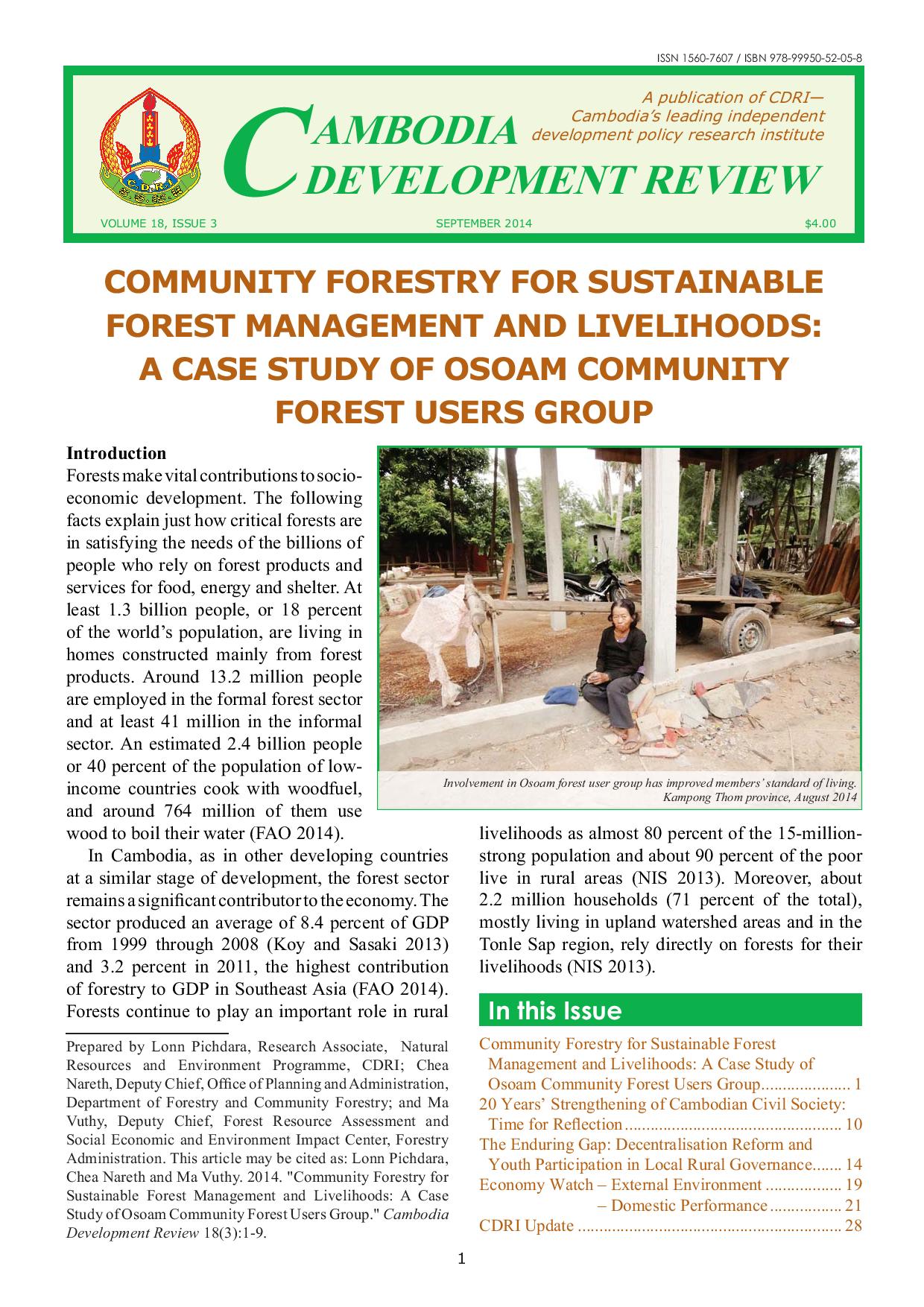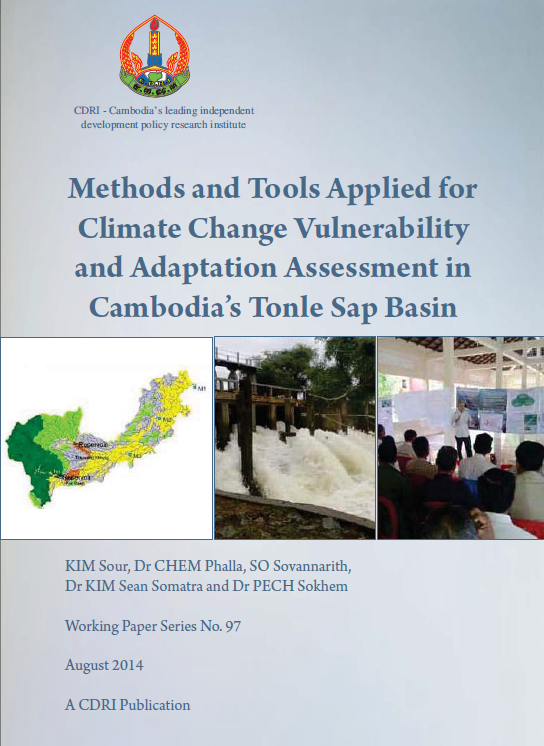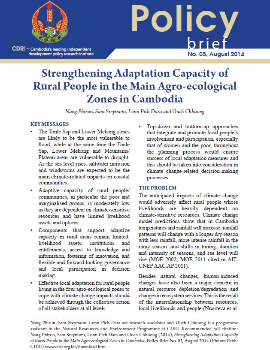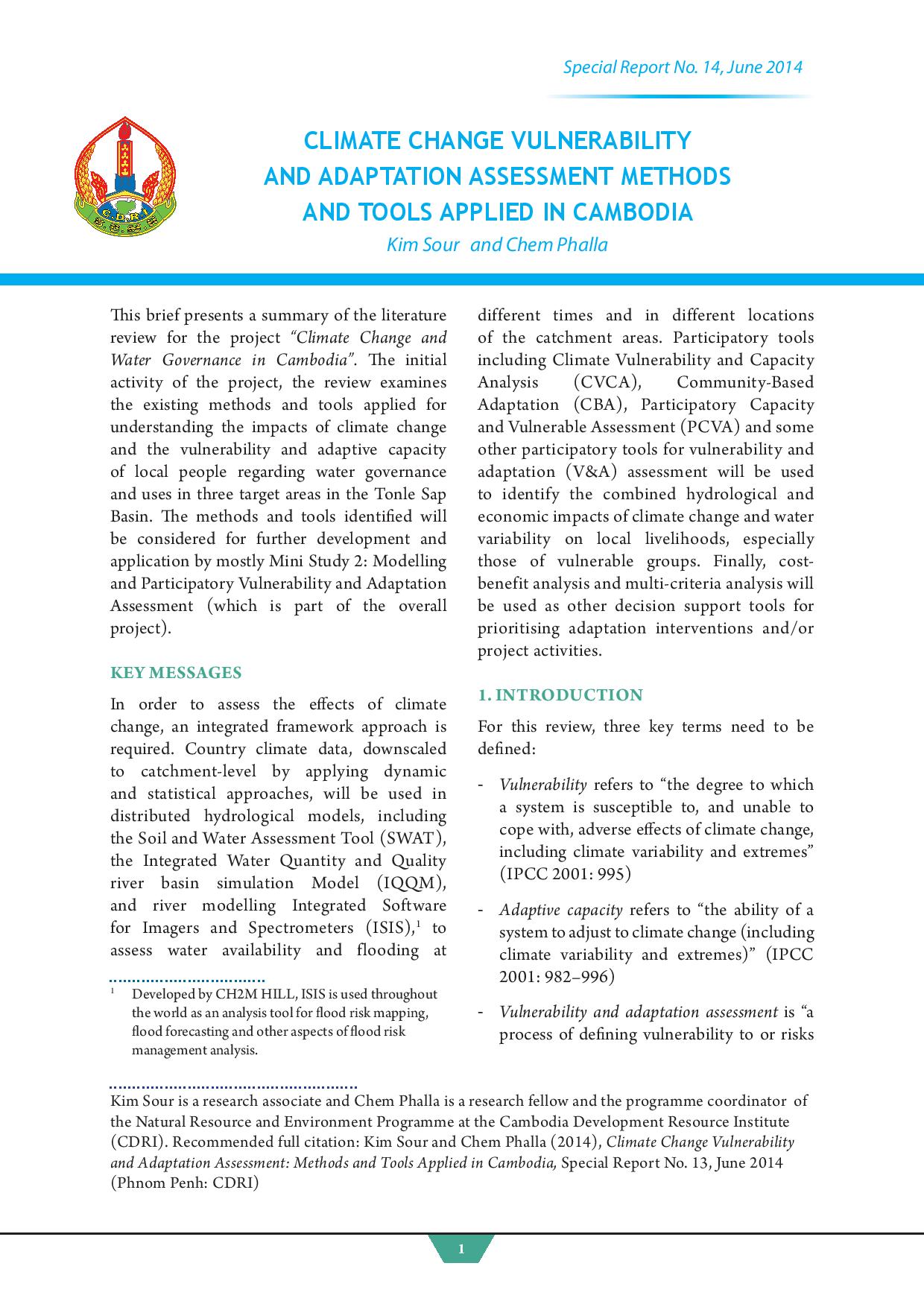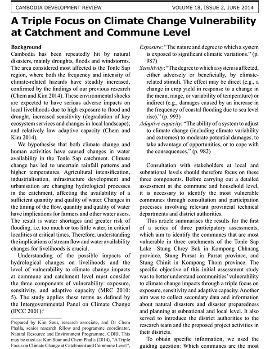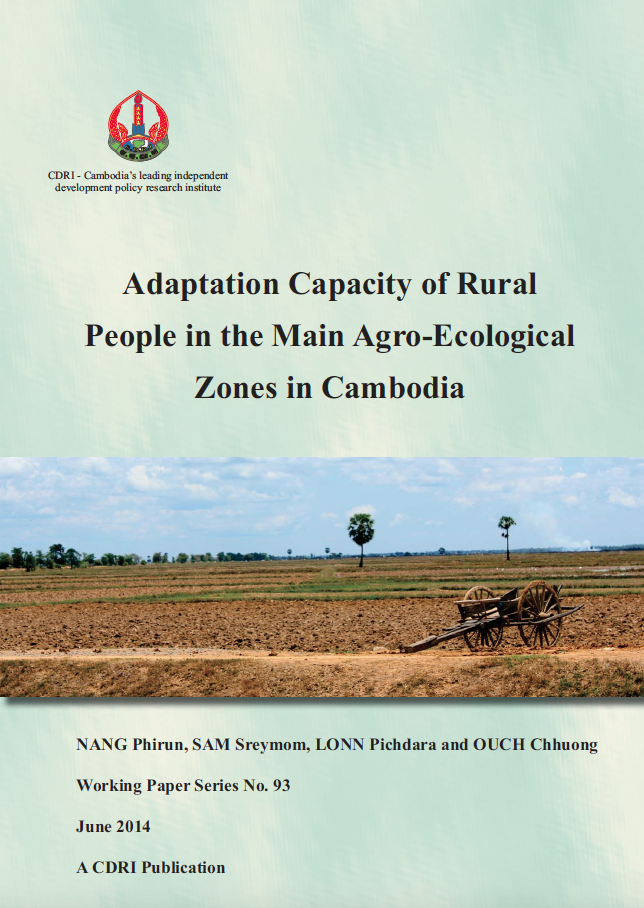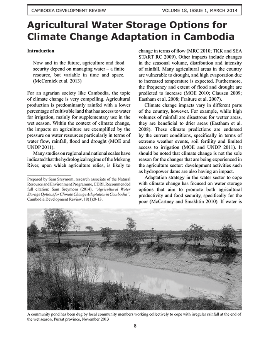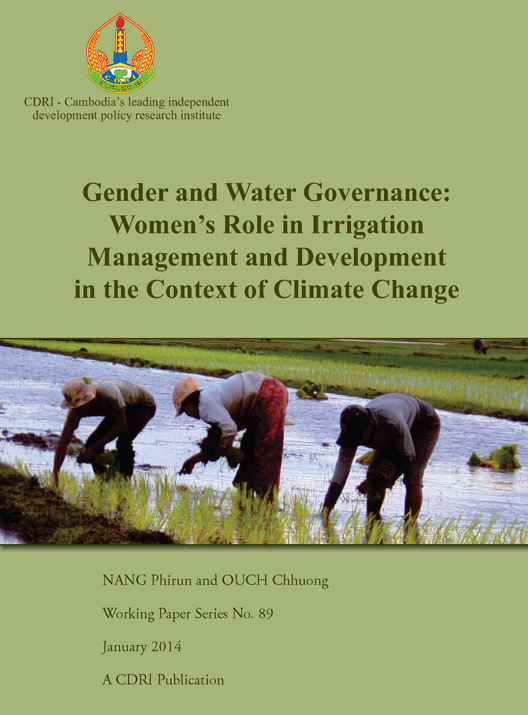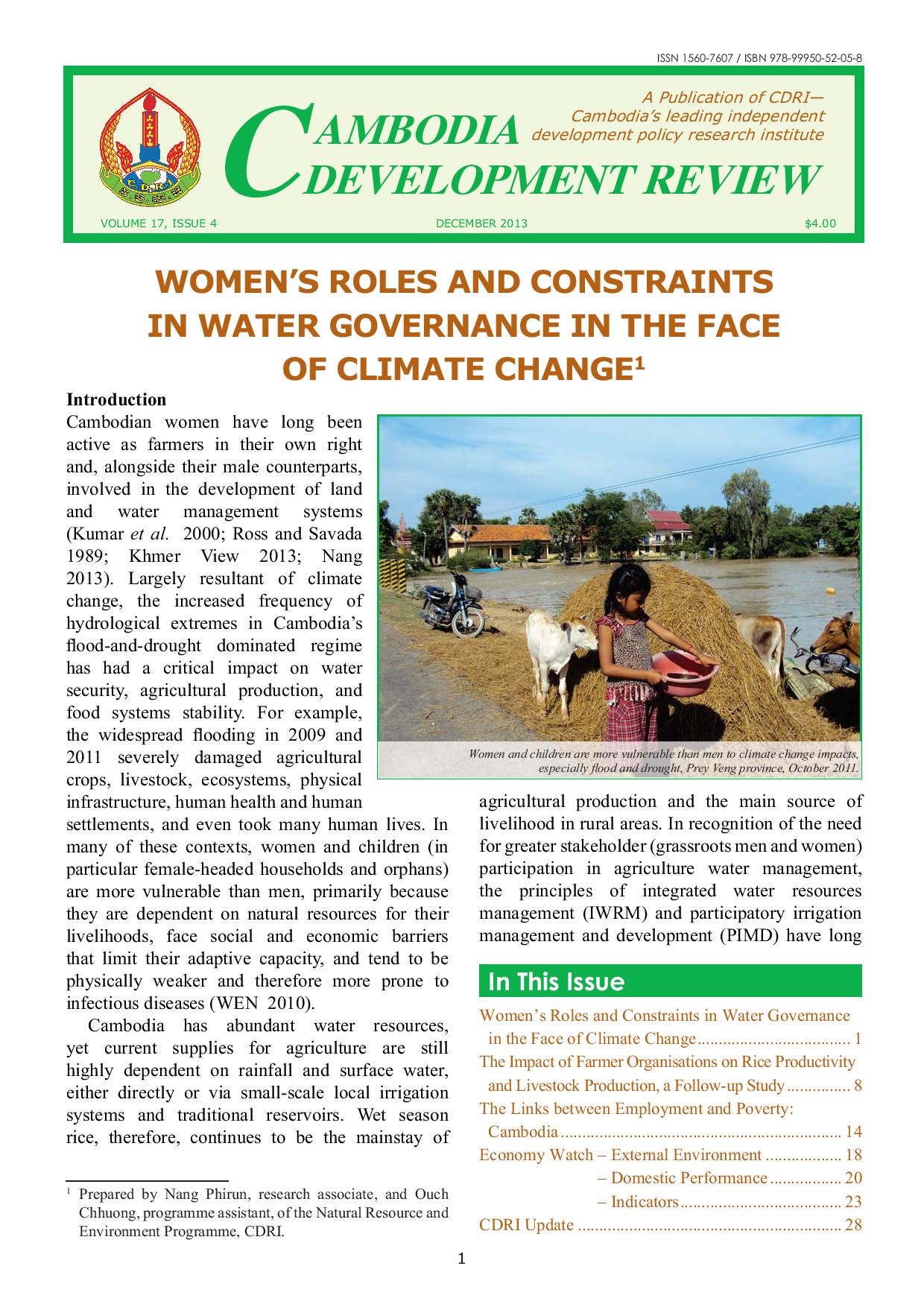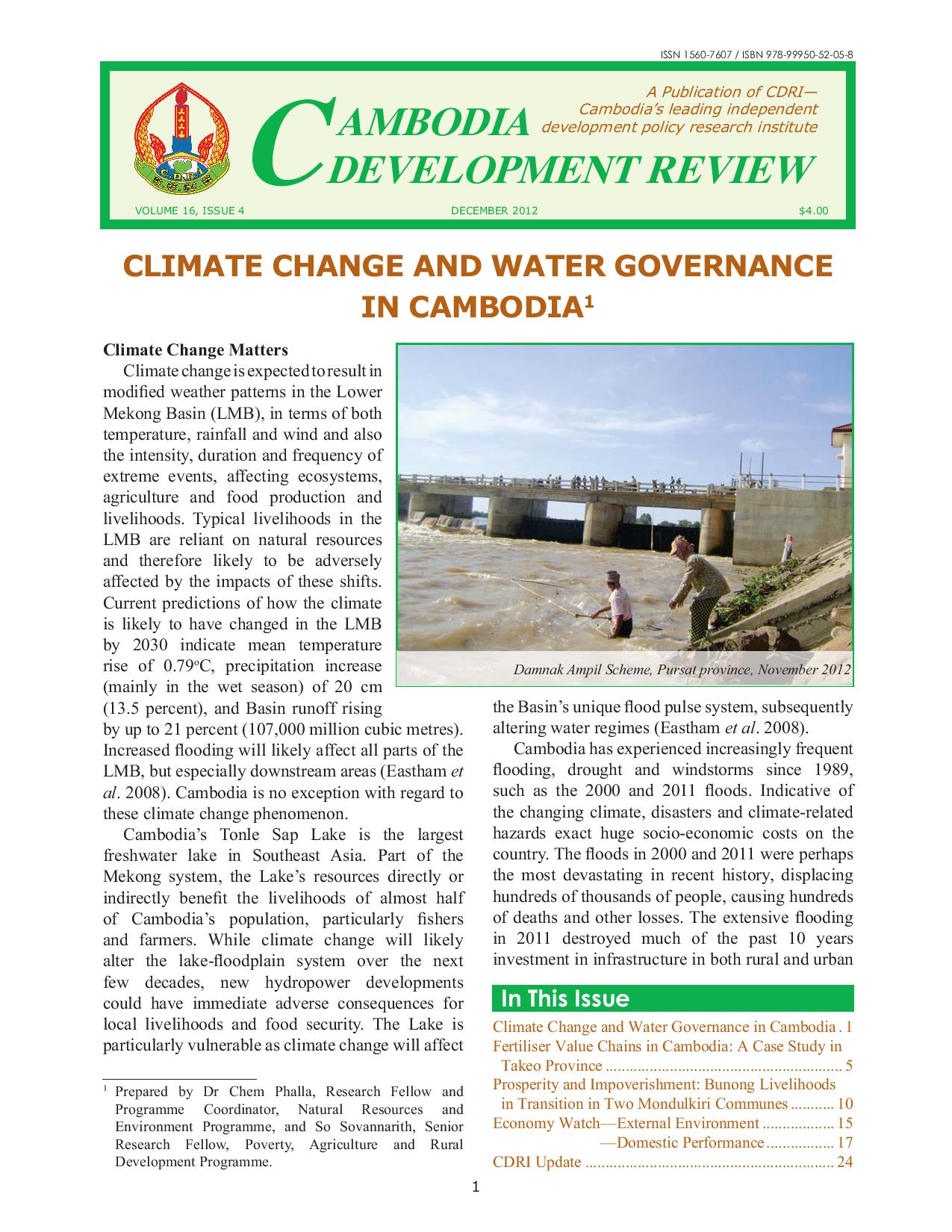Methods and Tools Applied for Climate Change Vulnerability and Adaptation Assessment in Cambodia’s Tonle Sap Basin
Cambodia is highly susceptible to natural disasters due to the frequency and intensity of extreme climatic events, primarily floods, droughts and windstorms, but also in particular to increased climate variability.These disasters and climate-related hazardshave exacted huge socioeconomic costs on the country’s economy and people’s livelihoods, especially in the last decade. It isimportant, therefore, to understand not only the level of impactbut also the vulnerability and the capacity of people to adapt to these hazards. This emphasises the needfor vulnerability and […]
Climate Change Vulnerability and Adaptation Assessment Methods and Tools Applied in Cambodia
This short paper examines existing methods and tools used to understand climate change impacts, local vulnerabilities and adaptive capacities, with a focus on water governance and water use, in three target areas in the Tonle Sap Basin. Assessment of the effects of climate change requires an integrated framework approach. That framework is made up of (1) country climate data downscaled to catchment level for use in distributed hydrological models, including the Soil and Water Assessment Tool (SWAT), Integrated Water Quantity […]
Adaptation Capacity of Rural People in the Main Agro-Ecological Zones in Cambodia
Cambodia is divided into four agro-ecological zones—the Tonle Sap plain, Mekong plain, mountains/plateau and coast—representing heterogeneous agricultural activity, population and livelihood systems (UNDP 2011b). Climate change impacts and the adaptive capacity of the people differ from one zone to another. Adaptation measures have varied according to the sector and the locality, adaptive capacity and severity of the impacts. Even though co-management by the state and communities of forest, fishery and water resources has been improved, local communities’ capacity to respond […]
Gender and Water Governance: Women’s Role in Irrigation Management and Development in the Context of Climate Change
Addressing gender issues is essential in promoting and advancing the role and economic, social, political, legal and cultural status of women. The need to address this concern has been increasingly acknowledged by the government of Cambodia since it would help to improve and sustain not only family economy but also national development and economic growth (UN Women 1995) (RGC 2010). In its third five-year strategic plan, Neary Rattanak III, the Ministry of Women’s Affairs (MOWA) sought to ensure gender-responsive national […]
Cambodian Agriculture: Adaptation to Climate Change Impact
Cambodia has been identified as one of the most vulnerable countries to climate change, given the predicted changes in temperature and precipitation, the share of labor in agriculture, and the country’s low adaptive capacity due to widespread poverty. In this study, we use climate data from four general circulation models (GCMs) to evaluate the impact of climate change on agriculture in Cambodia by 2050. We used the Decision Support System for Agrotechnology Transfer crop modeling software to evaluate crop yields, […]

